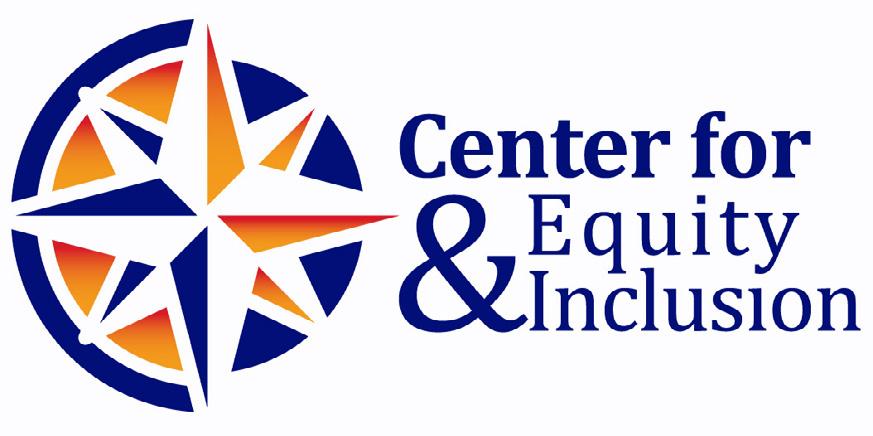
4 minute read
UWS Equity Team Innovation
Investment in Equity: Cultural Innovation at UWS
In early 2018, University of Western States formed an equity task force with faculty and staff, and the effort is supported by new clubs such as ENGAGE (Ending Negative Generalizations and Growing Equality), the first-ever Pacific Northwest chapter of the Student American Black Chiropractic Association (SABCA), and the growth of the UWS Allies Club.
As the U.S. population becomes more racially and ethnically diverse, UWS is taking steps to ensure that the university fosters a culture of inclusivity and that curricula supports cultural competence as a key student learning outcome. These steps are an important way to minimize racial health disparities in the communities that UWS students and alumni serve.
"As health care providers and educators, we share a duty to promote cultural competence in health care education, to expand access for integrated health care services, and to increase educational and professional development opportunities for students from diverse and underserved communities," said UWS President Joseph Brimhall, DC. "We are proud to deepen our commitment to creating an open and inclusive community for our students and employees, so that we are best positioned to fulfill our mission to advance the science and art of integrated health care through excellence in education and patient care."
In early 2019, UWS partnered with Portland’s Center for Equity and Inclusion (CEI). This consulting agency focuses their efforts on long-term and sustainable organizational change; guiding organizations through a process to create a more inclusive and equitable work environments. Notable local partnerships include the Portland Trail Blazers, Oregon Public Radio, the Oregon Food Bank and the Portland Art Museum.
The CEI approach to equity work focuses around the idea that, "in order for meaningful, sustainable change to occur in any environment, a transformative process that includes all people and aspects of an organization must take place." To support this transformative approach, UWS convened an equity task force comprised of faculty, staff and university leadership, with input from ASB and other key student groups.
“As a university that focuses on health sciences, we have a responsibility to promote cultural sensitivity and humility in our students so that they can be responsive to their patients’ needs and values,” said Alisa Fairweather, UWS director of community engagement. “Having a transformative culture shift that becomes the foundation for the way our university operates will hopefully attract and maintain a diverse crosssection of students, faculty and staff to the UWS campus, which will benefit us all. There is a significant lack of diversity in the health care professions, so part of our goal is to improve those statistics.”
“The equity work that we are undergoing is fundamental, because it is helping us to better reflect on and identify who we are as a higher education institution so we can convey these ideas to prospective students. This work has been important to me because, I envision equity as an invitation to step out of our respective comfort zones, questioning assumptions about who we think we are. As a Latina woman of color, I welcome new opportunities for learning and growth and I deeply appreciate my colleagues and all of those who are embarked in this journey towards institutional change.”
– Laura Burbano, UWS admissions advisor, member of the Equity Task Force
The UWS equity task force, facilitated by CEI, is working through a three-step curriculum including consciousness-raising, tool-building and strategic planning. By taking the time to shift the university culture, UWS hopes to create lasting and meaningful change throughout the organization.
“The [CEI] curriculum that has been presented to us has given me a different and more substantive understanding of the cultural and racial systems that I have been a part of my entire life,” said Dr. Kara Burnham, UWS associate professor in the department of basic sciences. “Seeing these systems through the lens that has been presented has taught me a great deal and has enabled me to identify and discuss aspects of racism that I simply did not recognize prior to this training.”
The work UWS is engaged in with CEI through 2020 is just the beginning. Over time, UWS will engage more staff and key stakeholders in efforts to continue to embed the principles of equity, diversity and inclusion into all aspects of the organization, from admissions, program curricula, student services, communication, the clinic system, community engagement, alumni relations and beyond.
“My department typically interacts with students early in the doctor of chiropractic program,” said Dr. Burnham. “Having the framework in place to make equity and inclusion a natural part of our community will set an expectation for both faculty and new students. As an institution, we must create a culture of inclusion as we move forward. Our students and employees must feel that this community is one that welcomes everyone.”
“This work will create a more welcoming environment for everyone, not just for people of color or other traditionally marginalized groups,” said Fairweather. “It sets the bar for what the institution’s expectations are around inclusivity. From a community engagement perspective, it will send a clear message that we are committed to creating a safe and comfortable space for all of our constituents to learn, work and thrive.”






